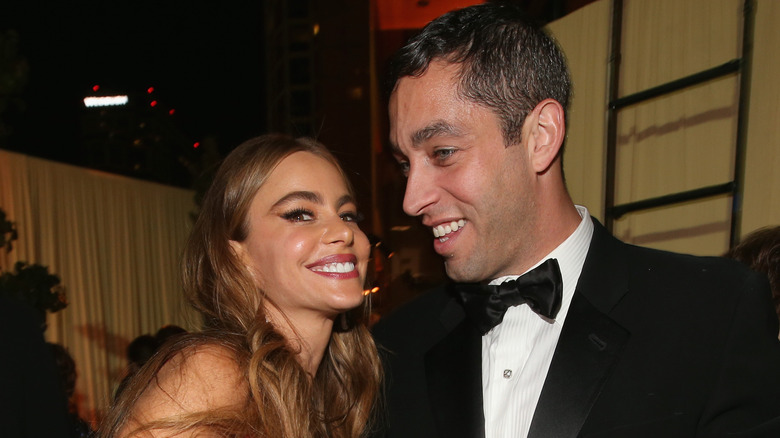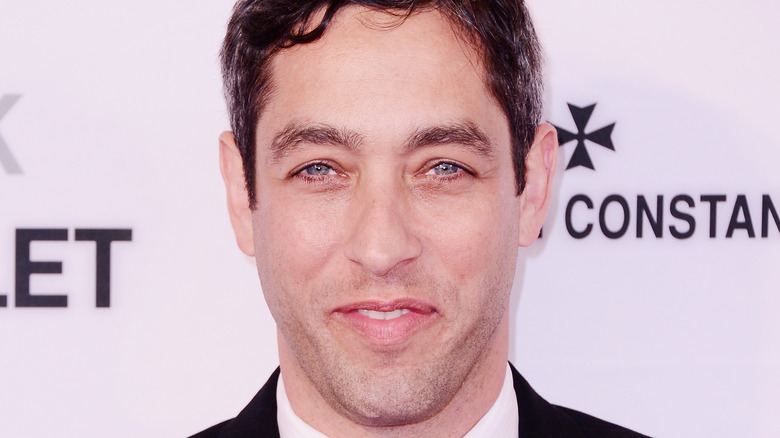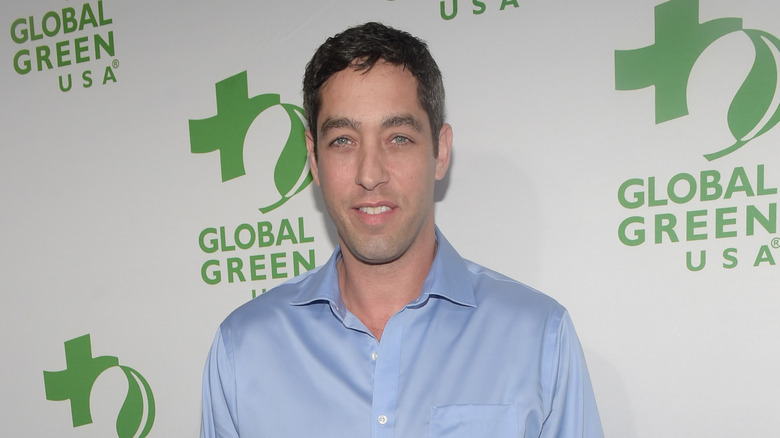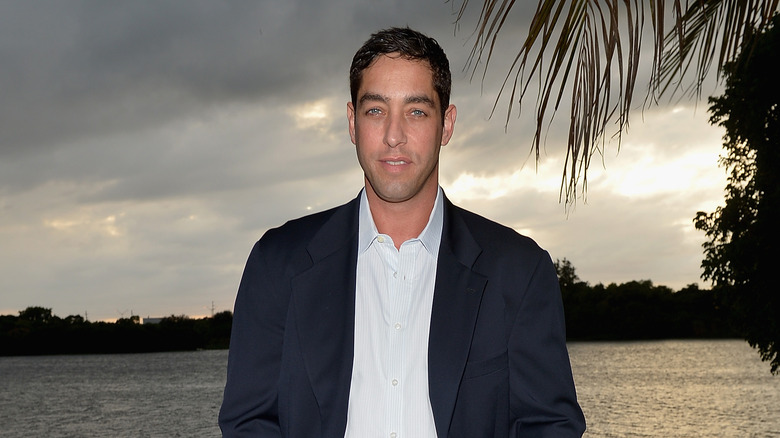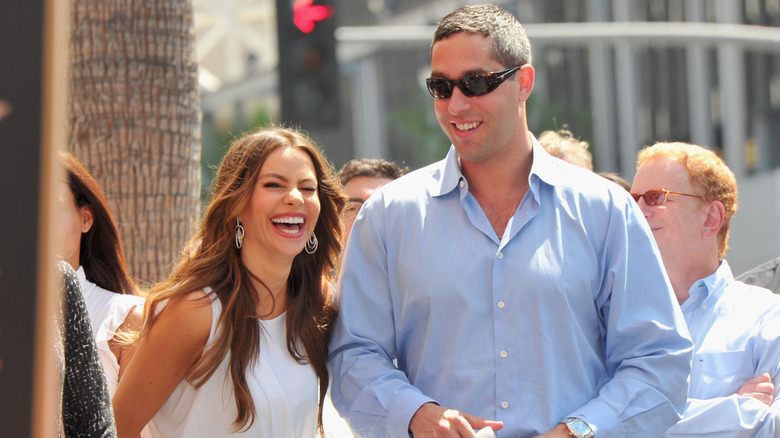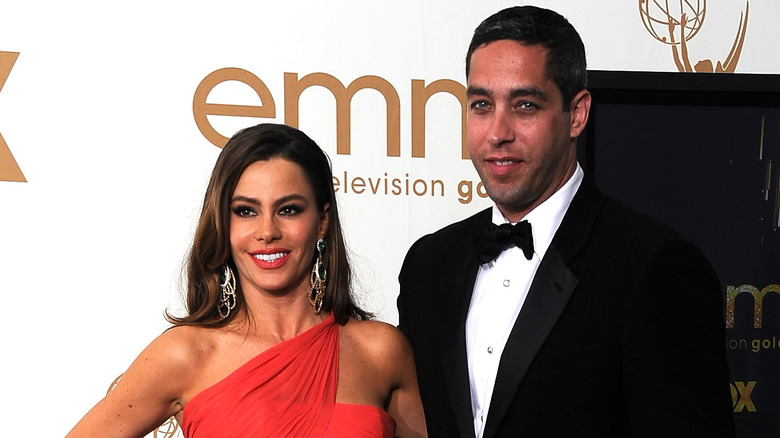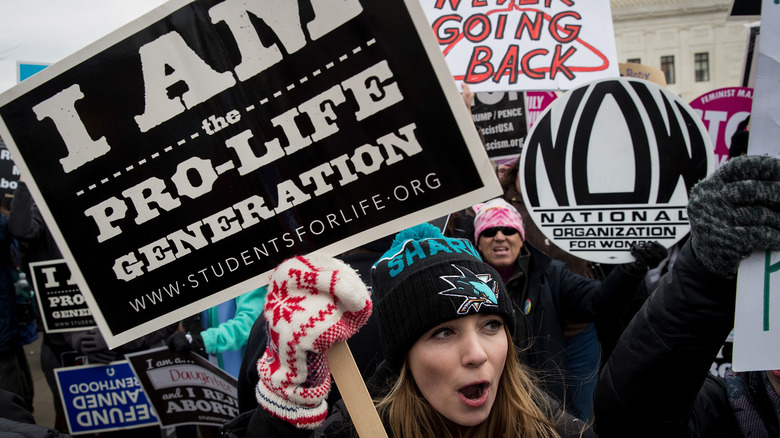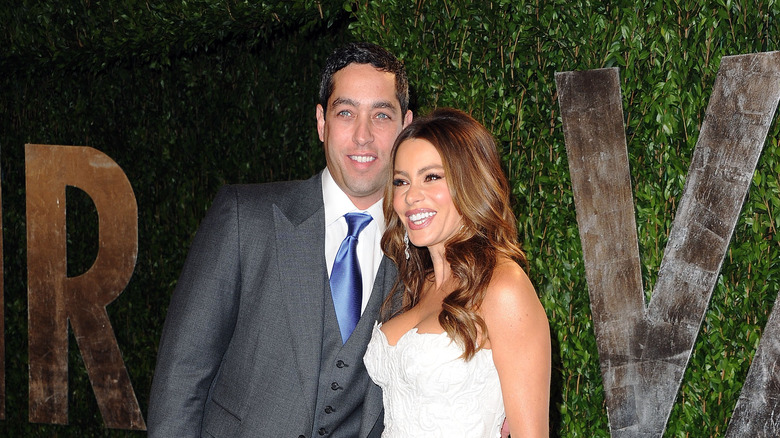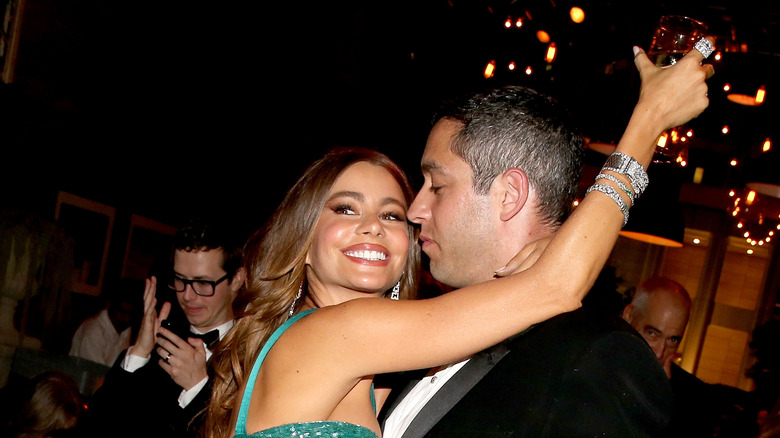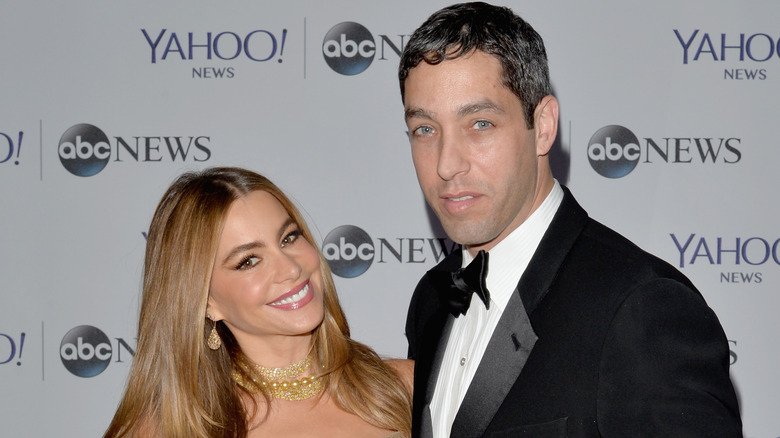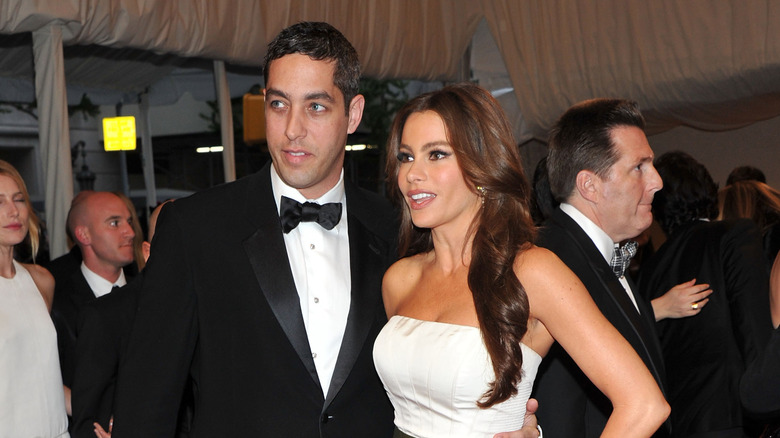Everything You Don't Know About Sofia Vergara's Embryo Battle
Most couples who break up fight over who gets the house or other physical assets, but actress Sofia Vergara's ex-fiancé, Nick Loeb, is suing for something very different: custody of their fertilized eggs. The case is quite unusual and one of the first of its kind, leading to a drawn out custody battle.
The couple split up in 2014 and Vergara has since married Joe Manganiello, but the battle over her embryos is still ongoing. The case has gained international attention and could be groundbreaking, setting a precedent for future cases. Here's everything you need to know about Vergara's legal battle so far.
Loeb wants the legal agreement he signed voided
While Loeb and Vergara were still together, they attempted in vitro fertilization twice. They each signed forms stating that both of the parties needed to give consent before their frozen embryos could be used, but did not state what would happen to them if the couple separated.
This legal loophole has resulted in a bitter and complex case with Loeb demanding that he be allowed to have custody of the embryos. He stated that the agreements he and Vergara signed should be "voided" as they are no longer together. Vergara has filed paperwork saying that any suits Loeb has filed are invalid because of the pre-existing agreement.
Loeb named the embryos Isabella and Emma
After Vergara refused to give Loeb custody of the embryos created in 2013 with his sperm and her eggs, Loeb petitioned the court to intervene on his behalf in 2015. A year later, he requested to drop the case, though a new lawsuit quickly took its place.
According to The Daily Beast, three plaintiffs are listed on the Louisiana lawsuit: "two embryos named Isabella and Emma, and James Charbonnet, a New Orleans resident with no clear ties to Vergara, Loeb, or the product of the pair's IVF efforts other than as the trustee of a fund meant to provide for their health, education, maintenance, and support."
The trust formed for the frozen embryos allows them to effectively sue a person. One of Vergara's lawyers, Fred Silberberg, said that this "latest maneuver" is "another attempt on the part of Loeb to keep himself in the public eye by keeping himself linked to Ms. Vergara."
Louisiana law allows embryos to sue a person
While the claim seems outrageous, the creation of a trust gives the embryos legal standing. A 1986 law passed by the state of Louisiana declares that "an in vitro fertilized human ovum exists as a juridical person" and that legal disputes should be settled "in the best interest of the in vitro fertilized ovum."
As laws concerning such cases vary from state to state, Loeb's team searched for the most "pro-life personhood friendly state they could find and then set up a trust so they would have standing," said Jeffrey Parness, a professor emeritus at Northern Illinois University.
Monica Hof Wallace, who teaches at Loyola Unversity's New Orleans College of Law, said that "it's tenuous, but the fact that they have a trust here adds another layer. From a legal standpoint, it was well thought out."
Loeb wants to take on all responsibility
In 2015, Loeb penned an open letter for the New York Times, begging Vergara to let him have custody of the frozen embryos. He said that "keeping them frozen forever is tantamount to killing them." He said that he is willing to assume all responsibility for the children that could be born from the embryos, declaring Vergara "an egg donor" who would have no financial or parental obligation.
"When we create embryos for the purpose of life, should we not define them as life, rather than as property?" wrote Loeb. "A woman is entitled to bring a pregnancy to term even if the man objects. Shouldn't a man who is willing to take on all parental responsibilities be similarly entitled to bring his embryos to term even if the woman objects?"
Loeb said that the issue is "unlike abortion" as it has "nothing to do with the rights over one's own body" but is rather about "a parent's right to protect the life of his or her unborn child.
Similar cases have usually been decided against the plaintiff
Parents have sued for the custody of frozen embryos before, although most of them lost their court cases. A 2016 Missouri court case ruled against Jalesia McQueen, a mother who wanted custody over her frozen embryos after her ex-husband argued that "forcing him to procreate with his ex-wife would be a violation of his constitutional rights, forcing him to have children he doesn't want," reported The Washington Post.
The court agreed that forcing someone to become a parent is a violation of privacy and that, under state law, "embryos have no legal claim to the same protections as a human being."
Pro-life groups are defending frozen embryos as children
Loeb is not the only person who has sought the aid of pro-life organizations. McQueen was also supported by pro-life groups such as Missouri Right to Life, an organization that helped her with her appeal. As part of her campaign to gain custody of her embryos, McQueen pushed for a bill that would "act in the best interests of the in vitro human embryo" by considering any fertilized egg to be a child.
Cases like this are challenging existing laws
Cases involving frozen embryos touch on complex legal territory. The argument against allowing one parent to take custody of frozen embryos without the other parent's consent is largely rooted in the constitutional right to privacy and the landmark Supreme Court case Roe v Wade, which protects reproductive rights.
Over the years, the Supreme Court has upheld "that the fundamental right of privacy protects citizens against governmental intrusion in such intimate family matters as procreation, childrearing, marriage, and contraceptive choice." Despite their ruling, however, many are challenging the law by arguing that frozen embryos should have legal personhood.
At least one person has gained custody of their frozen embryos
In at least one case, a parent has successfully gained custody of an embryo without their former partner's consent. In 2015, Karla Dunston was awarded custody of three frozen embryos that were made with her ex-boyfriends sperm. The sperm was donated after Dunston was diagnosed with lymphoma, with the knowledge that chemotherapy would render her infertile. After the couple broke up, Dunston's ex said he no longer wanted her to use the embryos, but the court sided with Dunston as it was her last chance to have biological children and she had an oral contract in place with her ex.
"The court was pretty clear in finding that there was an oral contract in which Dunston said, 'Even if we are not together, you may use the embryos' — essentially being a sperm donor," Susan Crocker, a reproductive law expert told NBC News. "This was a case where he said, 'I'm willing to be a donor or a dad.' The court found they agreed she could use the embryos, regardless of whether they had a relationship or he was going to be considered a donor."
Loeb says he is pro-parent
While Dunston's case could be used as a legal precedent to help Loeb win his, unlike Dunston's case Loeb is still able to father more children. Two of his ex-partners have had abortions while they were with him, a fact that Vergara's legal team tried to use to discredit Loeb's pro-life stance.
Loeb, however, has stated that in at least one of those cases the "decision was entirely out of [his] hands" and is one of the reasons he has "dreams of a family." He refers to himself as "pro-parent" who has the best interests of his potential children at heart.
Freezing embryos is a new technology and the law isn't keeping up
Since similar cases are rare, this could be the case that sets legal precedent for future custody battles over frozen embryos. The technology behind freezing eggs (and embryos) is still relatively new, and the laws surrounding it are not well-defined.
Alice Mann, who founded the blog Egged On, told The Telegraph that women who are freezing their eggs have a lot of things they need to think about. "I think it's just common sense to consider all eventualities," she said. According to Mann, Vergara's case "clearly indicates" that the technology of freezing embryos is still a new process which "society and the law are struggling to keep up with."
The legal battle could go on for a while
The ongoing battle is proving to be a tricky one as the law seems to support both Vergara's and Loeb's claims. Loeb doesn't appear to be backing down any time soon, which makes an appeal likely even if he loses the upcoming court case.
Loeb has defended himself from those who have painted him as a villain, saying "a lot of people think I'm trying to steal her eggs and they don't realize that an embryo is half mine — half my DNA and half her DNA. It's actually a human being."
Just how long the legal battle will continue is anyone's guess.
